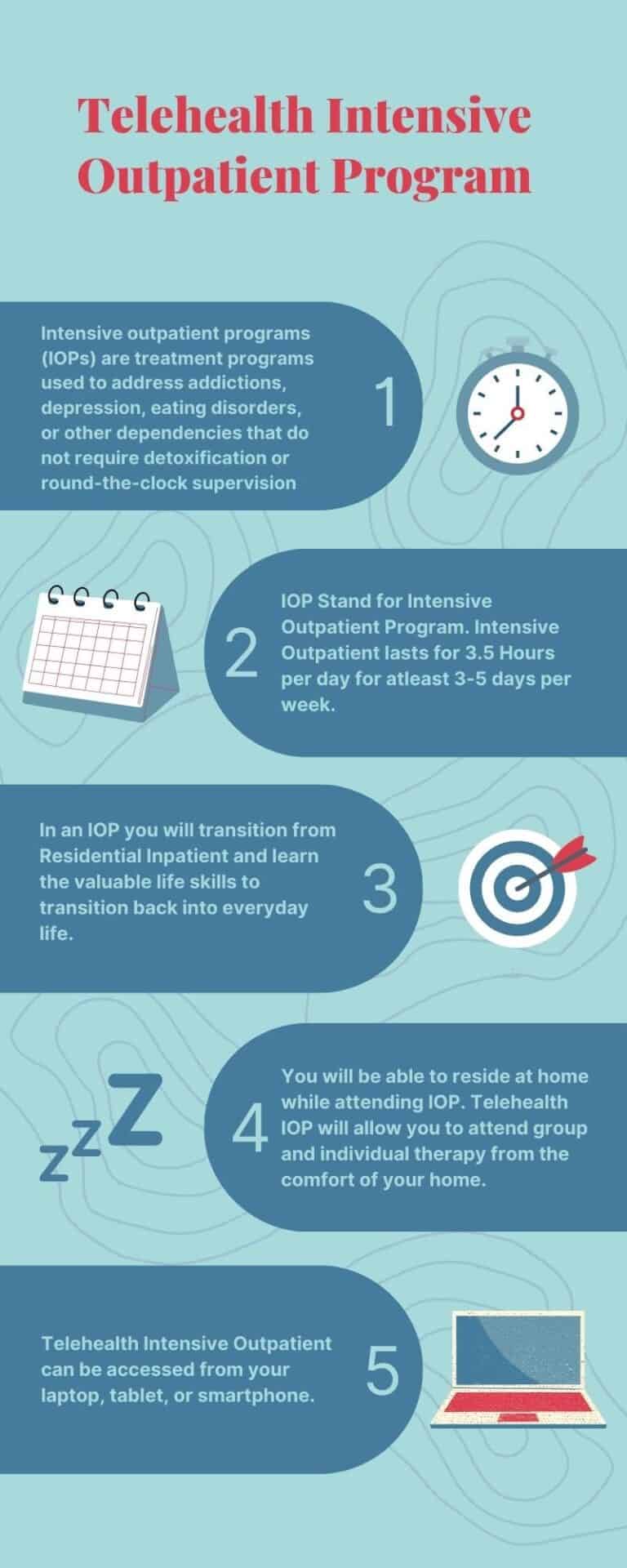Leading Reasons to Take Into Consideration an Intensive Outpatient Program (IOP) for Mental Wellness.
Leading Reasons to Take Into Consideration an Intensive Outpatient Program (IOP) for Mental Wellness.
Blog Article
The Impact of Holistic Therapies on Mind-Body Recovery in an Extensive Outpatient Program
In the realm of intensive outpatient programs, the incorporation of holistic treatments has actually stimulated substantial passion and dispute among specialists in the field of psychological health and wellness. The potential harmony in between standard restorative techniques and all natural practices in promoting all natural health stays a subject ripe for exploration and evaluation.
Integrating Holistic Therapies in IOP
Including holistic treatments into Extensive Outpatient Programs (IOP) can enhance the overall health and treatment outcomes of people seeking mental health assistance. Holistic therapies focus on treating the whole individual, addressing not just the signs and symptoms yet likewise the underlying reasons for mental health problems. By incorporating practices such as yoga, reflection, art treatment, and acupuncture right into IOP settings, people can experience a much more extensive strategy to their treatment.

Advantages of Yoga and Meditation
By infusing IOP settings with all natural treatments like yoga and meditation, individuals can access a range of benefits that contribute to their psychological and psychological well-being. Additionally, yoga exercise enhances self-awareness and cultivates a feeling of inner tranquility, which can be particularly helpful for individuals undergoing extensive outpatient treatment.

Acupuncture for Mind-Body Healing
Acupuncture, a conventional Chinese medication method entailing the insertion of thin needles into particular points on the body, uses a distinct approach to mind-body recovery by targeting energy flow and advertising holistic health. This old technique is based upon the principle of Qi, the body's vital force, flowing along meridians or paths. By stimulating specific acupoints, acupuncturists intend to restore the balance of Qi, which is believed to be crucial for general health and wellness and health.
In the context of mind-body recovery, acupuncture has revealed appealing lead to lowering stress, anxiousness, and clinical depression by regulating the body's physical response to these problems. Study recommends that acupuncture can help launch endorphins, the body's natural painkillers, and control neurotransmitters to improve mood and psychological well-being. In addition, acupuncture sessions are frequently gone along with by a sense of relaxation and calmness, which can add to an extra well balanced psychological state.
Furthermore, acupuncture is progressively being incorporated right into Western medication techniques to match conventional therapies for various psychological health and wellness disorders, using a holistic strategy that considers the interconnectedness of the body and mind in promoting recovery and health. Intensive Outpatient Program Check This Out (IOP).
Mindfulness Techniques in Treatment
Expanding on the realm of all natural treatments, mindfulness strategies play a pivotal role in treatment by cultivating a deeper connection in between the mind and body for general wellness. Mindfulness, rooted in old contemplative techniques, involves paying attention to the here and now moment non-judgmentally. In the context of an intensive outpatient program, integrating mindfulness techniques can assist people develop self-awareness, control emotions, and decrease stress and anxiety levels. Through mindfulness reflection, individuals can cultivate an increased sense of understanding of their ideas, sensations, and physical experiences, promoting a higher understanding of the interconnectedness in between physical and mental well-being.
Mindfulness techniques can also assist in damaging the cycle of unfavorable thought patterns and habits that may add to psychological wellness obstacles. By encouraging individuals to observe their ideas without attachment or judgment, mindfulness promotes a sense of approval and concern in the direction of oneself (Intensive Outpatient Program (IOP)). This technique can result in enhanced psychological strength, boosted coping systems, and a higher sense of internal tranquility. Eventually, incorporating mindfulness methods right into treatment strategies can encourage people to proactively take part in their recovery trip and advertise alternative wellness.

Assessing All Natural Interventions' Efficacy

Qualitative examinations, on the various other hand, include gathering subjective responses from individuals regarding their experiences with holistic interventions. This qualitative data can use important insights right into the perceived benefits of these therapies on individuals' general well-being, lifestyle, and coping mechanisms. By combining measurable data with qualitative feedback, scientists can gain a more alternative understanding of the efficacy of these interventions in promoting mind-body recovery within an intensive outpatient program. Such evaluations are essential for educating evidence-based methods and enhancing alternative treatment methods for people seeking extensive wellness.
Final Thought
To conclude, the integration of alternative therapies such as site web yoga, meditation, acupuncture, and mindfulness methods in an extensive outpatient program can have a substantial influence on mind-body healing. These therapies provide an even more extensive technique to therapy by attending to the physical, emotional, and spiritual aspects of an individual's wellness - Intensive Outpatient Program (IOP). Examining the effectiveness of these holistic interventions is essential in understanding his comment is here their prospective benefits in boosting the total recovery process for individuals in an outpatient setting
Report this page